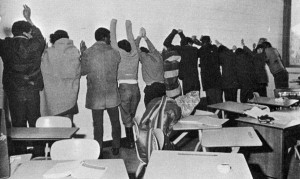Launched in 1976, the Toronto International Film Festival (TIFF) is heralded as the leading public film festival in the world. Many of the film industry’s most notable premieres and careers credit TIFF for their start. And since 2008 the leadership of Artistic Director Cameron Bailey has provided audiences, critics and industry executives one of the best experiences celebrating international cinema.
Its' principal objectives are “to lead the world in cultural and creative discovery through the moving image, and to showcase Canadian achievements in an international context.”
Festival director Cameron Bailey, who came to Toronto by way of London and Barbados, began his career with TIFF as a programmer in 1990. He has worked as both a film programmer and critic for two decades, and is one of the few Black film festival directors to achieve this level of success.
Nicole Franklin: Is TIFF unique in providing significant milestones concerning filmmakers and stories from the African Diaspora?
Cameron Bailey: This year marks the 20th anniversary of when we launched the Planet Africa section of the Festival back in 1995. The aim then was to engage an audience across borders and to encourage viewers and critics to see the parallels between films made by black filmmakers in Brooklyn, London, Dakar or Port-au-Prince. Today, we've seen Abderrahmane Sissako sweep the French Academy awards with Timbuktu, Ava DuVernay's Selma and Amma Asante's Belle win critical raves, and Steve McQueen's 12 Years a Slave win the Oscar for Best Picture. Filmmaking from the African Diaspora is thriving, and we'll do everything we can to support it.
NF: I specifically cover documentaries and hope that one day the cover-all genre label of "documentary" may involve more categories resembling the narrative films. For instance, documentary films may be cause-related, headline-related, historical, POV, first-person-on-a-mission (a la Michael Moore and Morgan Spurlock). Are you noticing trends toward the afore-mentioned filmmaking styles or any breakout formats that we may look forward to?
CB: There's a real distinction to be made between advocacy docs like George Amponsah's The Hard Stop or Michael Moore's Where Do We Invade Next and portrait docs like Amy Berg's Janis Joplin: Little Girl Blue or Brian D. Johnson's Al Purdy Was Here. Casual viewers sometimes think documentaries have to be about serious issues -- and they often are -- but you won't find more enjoyable movies at our festival than the Al Purdy doc.
NF: Any observations of audience behavior toward documentaries of which you feel filmmakers should be aware?
CB: One of the best advantages of seeing documentaries at a festival like ours is the opportunity to engage with the filmmakers during the Q&A sessions. Filmmakers often look forward to these as well, since most good docs will leave you with new questions.
NF: Best advice to a documentarian starting out whose dream is to be an official selection of TIFF?
CB: Watch as many critically acclaimed and award-winning docs as you can. Figure out what makes those films successful. Then absorb that knowledge and take your own path as a filmmaker. When we're inviting films we look for a very high level of craft and a unique perspective that could come only from this filmmaker.
After our conversation with Cameron Bailey we learned that the Aretha Franklin documentary Amazing Grace has been pulled from the festival due to legal reasons. We could not get a direct quote from Bailey but TIFF put out an official statement today:
“We are extremely disappointed that Toronto audiences will not be able to see this extraordinary piece of art. The footage in the film is truly a cinematic treasure of twentieth century music and we hope global audiences will have opportunity to experience this film once a resolution is found.”










